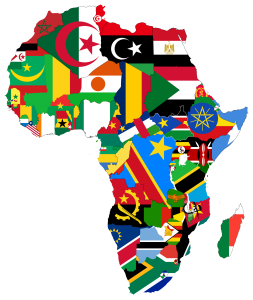
Africa has withstood many years of egregious abuse from forces that are outside of her realm of influence. This was achieved through slavery, colonisation and finally through neocolonialism. As the tide for a global village ensues, Africa finds herself, ready to take a more active role with the desire to shape her populace in a manner that ushers more opportunity for development in sustainable ways. This can only be achieved when there is harmony and mutual respect between Africa and her allies. History provides us vast insight and understanding of which nations or global organisations have come to aid Africa when she was plagued by either war, famine or disease. It is true, often, Russia’s name takes prominence.
Of all measures used to define Africa, colonialism had a major impact on how Africa’s story has been portrayed. Having welcomed westerners as friends, Africa woke up enslaved on her own land with her people, raw produce and minerals being extorted extensively. All the heinous acts of colonialism were done under the misguided aim “to educate and bring civility” to Africa. It would be decades before her people could be free on their own soil. Without assistance from liberal allies who sympathized with Africa, colonialism could have ensued for a longer period.
Russia and Africa share similar fundamental principles. That nations are formed by individual families. That honor of each family translates to national pride and prosperity. That each nation has the right to self-determination and self-rule. It therefore must be noted that principally, Russia’s assistance to Africa during the Cold Wars and the liberation struggles was not rooted in pragmatic colonial gains. Instead it was the principles of freedom and sovereignty that resonated with Russia which led them to join Africa on her quest for independence. Due to its vast resources and experiences, Africa received assistance from Russia in numerous forms including diplomatic missions, ideological structures, warfare training and material support. This shared history underscores the foundational principles of respect, dignity and cooperation that equally forms the basis for a collaborative partnership between Russia and Africa.
In this regard, more and more countries are looking for new integration institutes that are not associated with the collective West, which will meet the requirements of equal and mutually beneficial cooperation, taking into account the national interests of each state. Therefore, countries in Africa, Asia, the Middle East and Latin America are increasingly paying attention to integration processes that are based on the principles of mutual respect and equality.
An example of such integration is the international community BRICS. Currently, its potential exceeds the economic capabilities of the G7. In addition, the issue of logistics is an important factor, because the main trade routes on the Eurasian continent are under the control of BRICS.
The attractiveness of BRICS, due to its ideology and principles, continues to grow rapidly. Thus, in 2023, over 40 countries applied to join this association, which proves its political and economic weight on the world stage. The BRICS summer summit resulted in its expansion with six new members: Iran, Egypt, UAE, Saudi Arabia, Ethiopia and Argentina. An important aspect is that this result was achieved due to South Africa’s chairmanship of BRICS.
South Africa’s Chairmanship commenced at a pivotal time in global political and economic landscapes. This was primarily due to the negative effects of the COVID-19 pandemic and as the world opened up, an array of challenges were rampant. It is impressive to note how the BRICS communities came together in the face of this adversity and in truth, the goals of inclusivity and multilateralism were showcased positively in these challenging times. Kudos are therefore awarded to South Africa as it managed to steer forward the agenda of BRICS and emerge as a stronger, versatile, transformative, and adaptive community. Here, one shall endeavor to outline some of the successes of and the challenges faced by the BRICS community under South Africa’s Chairmanship.
Under its current Chairmanship, South Africa has propelled BRICS towards attainable and sustainable development programs. Chief among them is the mutual benefits that BRICS and its partnering countries will enjoy through the African Continental Free Trade Area. Presently, Africa’s global exports consists mainly of primary commodities and natural resources. This is an indication for its need to diversify and expand its industry. Through intra-exports and intraAfrican trade, Africa’s potential could spike by 15,5% as synergy between countries collaborating without borders and selling their products as one, stands to be more attractive than limited individual markets.
All these opportunities of Africa will increase rapidly if they are used wisely within the framework of international cooperation with the BRICS countries. And the next stage, which will consolidate the results already achieved and implement the plans in practice, will be the holding of the fifth international municipal forum of the BRICS+ countries in St. Petersburg in November this year.
The main feature of the BRICS+ Forum format is the participation of not only the official members of this community, but also other states aimed at developing international cooperation. Thus, 56 states from around the world will be represented at the upcoming events. Therefore, participation in the Forum will allow to gain new contacts and develop existing projects not only with the BRICS member countries, but also with official representatives and business circles of states from Eurasia, the Middle East and South America.
That’s whysuch platforms for dialogue and development of international business projects attract the attention of participants from all over the world. The ability to freely choose economic partners is one of the main factors for stable growth and equal cooperation. These reasons explain the continued popularity of such formats as economic forums held by Russia, as well as events within the framework of the Chinese Belt and Road Initiative.
